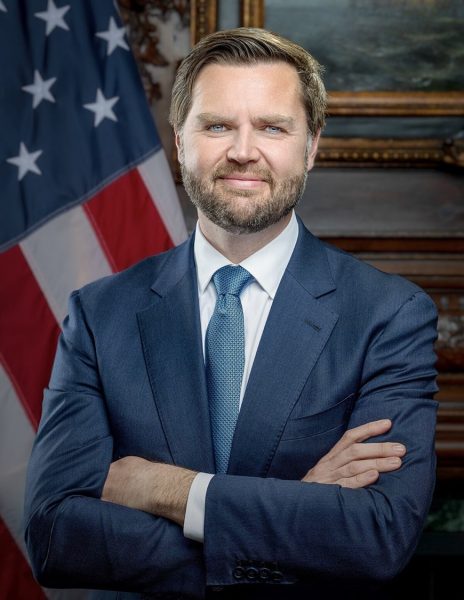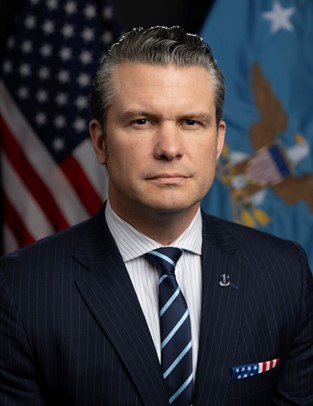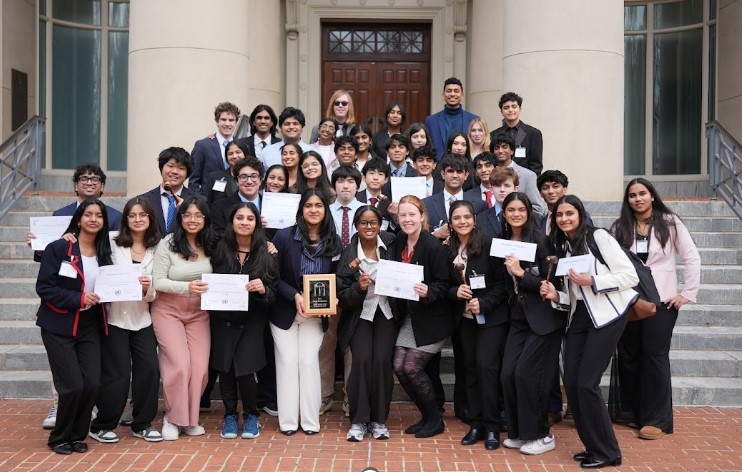On March 11, Jeffery Goldberg—the editor-in-chief of The Atlantic—was accidentally added to a group chat on the messaging app Signal containing top Trump administration officials. The group chat was created to plan a bombing campaign against the Houthis in Yemen, which was carried out on March 15, and exposed Goldberg to highly classified information that could have been devastating to America had it fallen into worse hands. This controversy, along with the Trump administration’s response to it, has sparked a conversation about the ways in which top government officials should communicate with each other.
Goldberg went public with his experience on March 24 in an article titled “The Trump Administration Accidentally Texted Me Its War Plans.” In the article, Goldberg describes how he received a communication request on Signal from Michael Waltz, America’s National Security Advisor, and was initially suspicious that the account was a fake designed to entrap him. He accepted the request regardless, and two days later, he was added to the group chat, titled “Houthi PC small group.” According to Goldberg, the group chat contained eighteen people, including Secretary of Defense Pete Hegseth, Secretary of State Marco Rubio, Director of National Intelligent Tulsi Gabbard, and Vice President JD Vance. Throughout the next two days, Goldberg was the accidental witness to highly sensitive intelligence information about the campaign in Yemen, including the targets, weapons, and attack sequencing—all of which was proven accurate on March 15. On March 26, Goldberg released screenshots of every single text he was privy to, after confirming it was safe to do so.

This incident was caused by a number of factors. Phoenix (12) believes the issue was the use of Signal itself, noting that it is a “public application” used by people all over the world, whereas a private application developed and used only by the American government would be much safer. Nigel (12) agrees, stating that although this incident was “purely an accident,” he thinks that the use of a public site is “highly inappropriate for this kind of situation.” One teacher places the responsibility on the individual officials involved rather than on the government, blaming a “lack of proper” training for the incident.
Although ultimately no damage was done to America’s national security, it was only by luck, and a much greater catastrophe could have occurred had someone other than Goldberg been added to the group chat. As such, there is a need for significant change in the ways government officials communicate to prevent such a disaster from ever happening. Nigel thinks that the American government should higher “trustworthy developers” to design a more secure messaging system to be used solely by government officials. Alex (12) likes the idea of an “in-house messaging system,” which he describes as being “like Discord, but more exclusive and more secure.” Additionally, Elizabeth thinks that there should be a law to “oust politicians who do this,” and the teacher suggests clarifying the levels of clearance.
In the aftermath of the incident, Goldberg reached out to a lawyer, who confirmed that the use of Signal was not only irresponsible but also potentially illegal. Information about an active operation is considered highly classified, and according to the Espionage Act, highly classified information must only be communicated through approved government channels, which almost all prohibit digital communication. Signal is not, and never has been, approved for such a purpose. Despite the serious risk to national security, Signal has been reveling in the controversy, tweeting: “There are so many great reasons to be on Signal… Now including the opportunity for the vice president of the United States of America to randomly add you to a group chat for coordination of sensitive military operations.”
Initially, the Trump administration asserted that the information shared on the group chat was not classified, downplaying the sensitivity of the texts and the severity of the risks involved. According to the New York Times article “What to Know About the Fallout From the Signal Group Chat Leak,” Trump has yet to establish a coherent narrative around the situation, with the White House press secretary falsely stating that Signal was an “approved app” for government use and Trump stating that he “doesn’t know” if anything classified was shared.

Many have found the Trump administration’s response to be lacking. Phoenix feels confused by the response, stating that the Trump administration “doesn’t seem to understand what happened.” Similarly, Nigel is disappointed by the reaction, feeling like “Trump and his administration are belittling the situation rather than taking it seriously, focusing on saving face rather than addressing the issue.” Elizabeth (12) is “frustrated” that the current administration is seemingly “refusing to hold people accountable”.
This situation has significantly impacted the way Wheeler students view the Trump administration. For Phoenix, it has “negatively affected” her opinion of the current government, viewing the use of non-government communication as “concerning.” Similarly, Nigel now feels “less confident” in the Trump administration, and he especially thinks the situation “reflects poorly on Hegseth.” Only time will tell if the Trump administration can implement preventative measures and earn back the trust of the American people.




